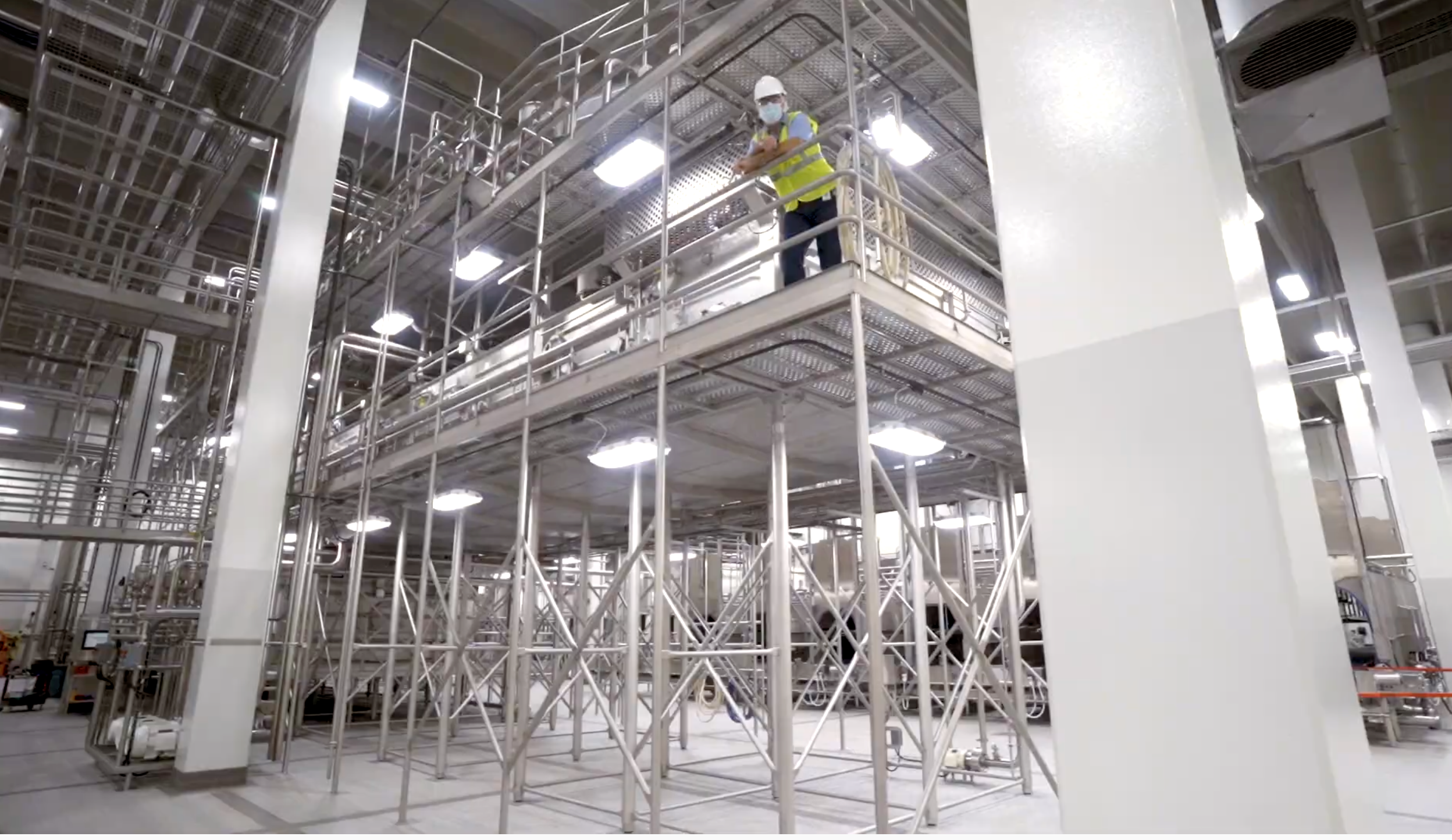Energy efficiency and overall sustainability was a key element of the project build at our newest facility, MWC. A $470 million state-of-the-art cheese and whey plant in St. Johns, Michigan, is a joint venture between Glanbia Nutritionals, Dairy Farmers of America Inc. (DFA) and Select Milk Producers Inc.
Glanbia Nutritionals operates the facility and markets its cheese to food service companies and other cheese companies and its whey protein powders to food, beverage and supplement companies.
The nearly 400,000-square-foot facility will employ 260 people and will process over 2.9bn pounds of milk from local farmers into more than 300m pounds of superior quality block cheese and 20m pounds of value-added whey protein powders each year. MWC will provide a long term, sustainable outlet for over 25% of the milk produced in Michigan, underpinning farm incomes and providing a significant boost to the local economy.
Glanbia, as operations partner, brought sustainability to all aspects of this project with a commitment to preserving the environment and natural resources. MWC believes that environmental protection is the responsibility of every employee, so each individual is trained on the environmental impact of their assigned duties and how they can ensure compliance.
Energy efficiency was a key element of the project build in Michigan. We work with local utility company, Consumer Energy, which supplies an energy mix inclusive of 11% renewable energy from hydroelectric, wind and solar sources. Consumer Energy has been scored highest for sustainability performance among U.S. energy providers by Sustainalytics.
Sustainability highlights at MWC:
- $25m water and wastewater treatment system.
- Reusing +90% of water.
- Generating +800,000 gallons a day of clean water from milk.
- Focus on renewable energy – including biomethane.
- Energy efficient LED lighting and heat recovery.
Its innovative design includes a $25m state-of-the-art water and wastewater treatment system, providing efficient steam, heat, and water recovery - reusing over 90% of water.
MWC is in effect a net generator of water since it discharges more water than it pulls from the city. Reverse osmosis and polisher equipment generates ~800,000 gallons a day of clean water from the milk we are processing. This water is pulled from the milk, and then re-used to wash our equipment each day. Instrumentation is used to recover clean flush water for all equipment rinses, minimising water down the drain and re-using the water as many times as possible.
The WWTP currently processes 1.5 million gallons of water a day, which is treated to high enough standards to be discharged to the Great Lakes.
The boilers for steam generation are fuelled by clean-burning natural gas with related emissions at a fraction of the established air permit standards.
The MWC wastewater treatment plant includes anaerobic digestion to generate biomethane generating renewable energy from waste. The biomethane is used to fuel the plant. Heat from pasteurisation of the milk is captured and used to preheat the whey, saving thermal energy.
The plant uses energy efficient lighting and heating/cooling units. The primary energy savers that have been included in MWC are Variable Frequency Drive motors (VFDs) on all process pumps, LED lighting, and heat recovery on our boilers, milk pasteurisers, and the dryer exhaust stack.
